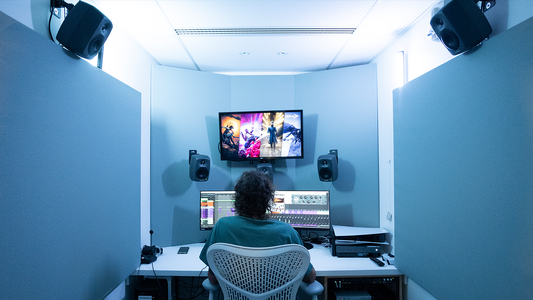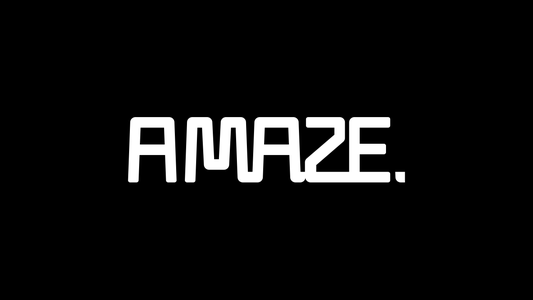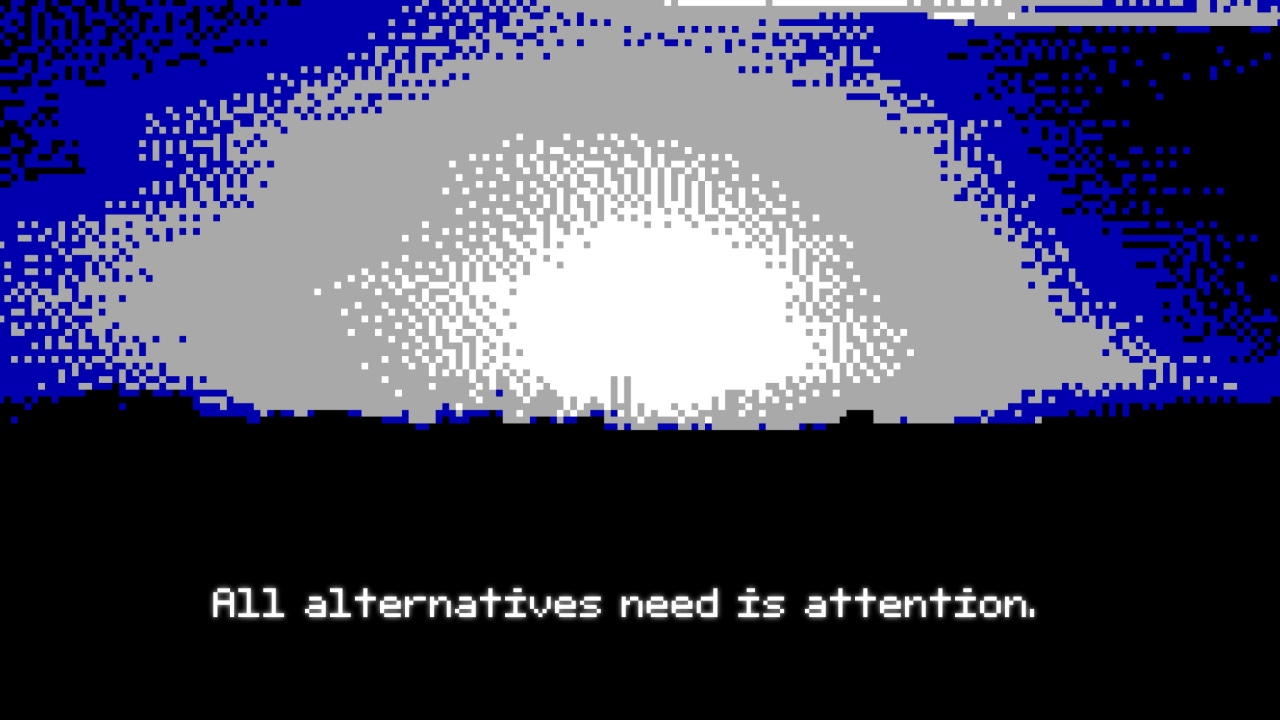
This is the talk transcript of the keynote I gave at IEEE CoG 2024. All links in the slides are conveniently laid out so anyone interested can follow these wonderful history tangents. Thank you for having me!
I’m Nathalie Lawhead and I go by alienmelon online and in my work.
I’m an experimental software developer and game designer.
My work revolves heavily around exploring interactivity and the intersection between software, tools, toys, and art.
My passion is when software is both creative and creatively empowering. I think there’s an underrecognized power behind a creative person coding something, publishing that, and it empowering others to be creative with that. It’s such a fundamental concept to computers. It’s a creative upward spiral that keeps on giving.
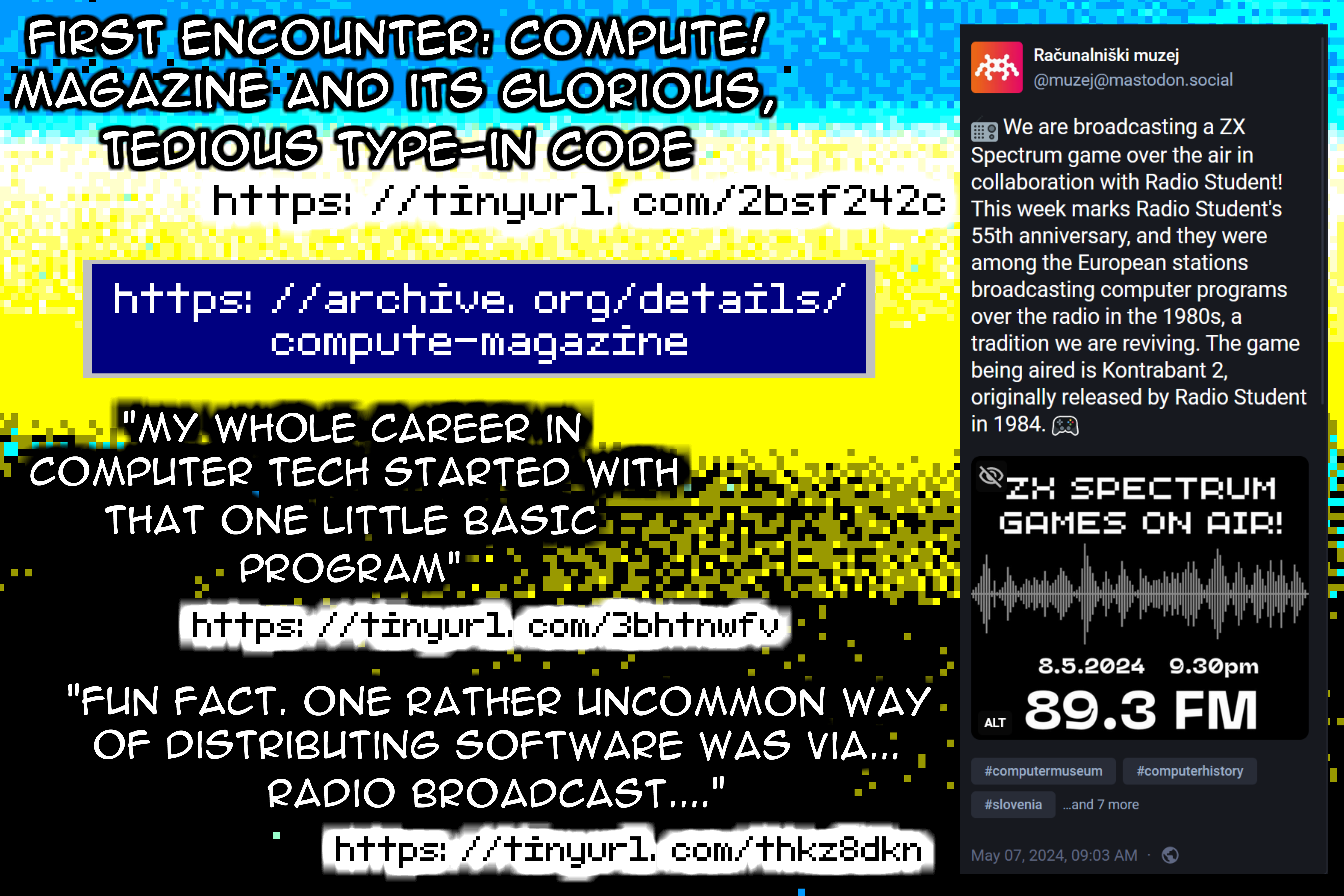
– Links in this slide…
* First encounter: COMPUTE! magazine and its glorious, tedious type-in code
* “My whole career in computer tech started with that one little BASIC program”
* “Fun fact. One rather uncommon way of distributing software was via… radio broadcast.”
* https://mastodon.social/@muzej
I find the way that this evolved as part of computers such a beautiful thing. The fact that computers are personal. That you have a machine where your virtual life and creative life exists. The fact that the desktop was called “Home”…
The concept that creatively existing here is so much of a fundamental part of computers that you can look back to when magazines were dedicated to sharing code that people could follow along with to build a game that someone made, and that hobbyists could distribute their personal work via floppy disks… to today where we are used to seeing this same dynamic happening with web apps and indie games.
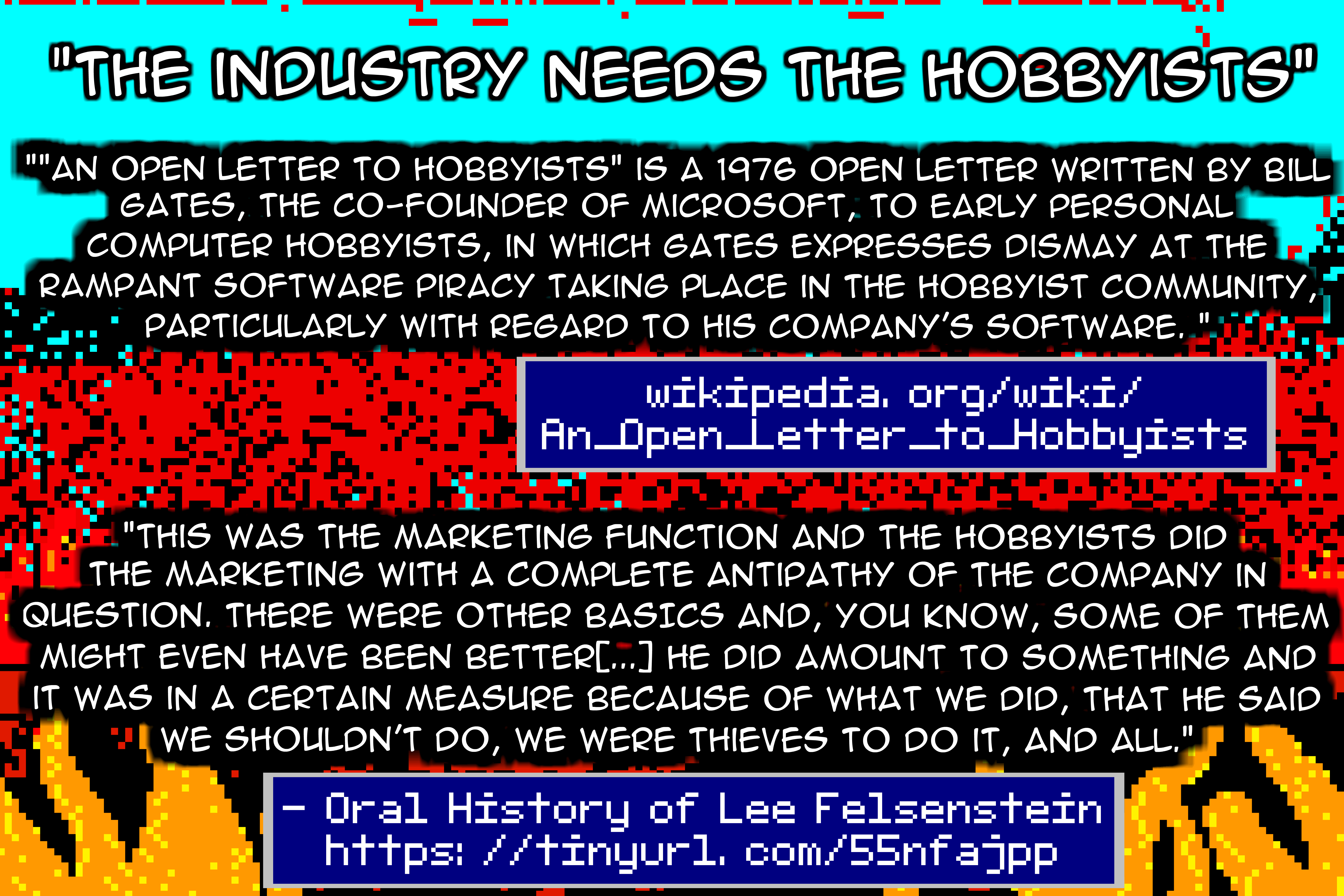
“The industry needs the hobbyists”
Solo developers are critical participants in this space. They always have been.
I’m also equally as fascinated, and morbidly humored, by past controversies surrounding hobbyist development and the friction against those that make money.
For example Bill Gate’s “An Open Letter to Hobbyists”, written in 1976, in which Gates expressed frustration with hobbyists who used his company’s software without paying for it. Then hobbyists responded by arguing that it was popular because of them.
All this is very reminiscent of present day social media controversies too.
Software is also dramatic it seems.
I make this point because this, the way hobbyists are viewed as either a nuisance or looked down on as “just hobbyists” (the implication being that work is only valuable if it makes money), has always existed.
Recent views about solo development in the game industry and how it’s only “hobbyist work” until it makes a lot of money, then it is professional, are similar.
This type of friction is not new.
I agree with the continued relevant statement that the industry needs hobbyists.
I’ll give some context to my work now…
Some time ago I made a throwback to the glory days of desktop publishing called “The Electric Zine Maker“.
It’s a program that kind of straddles the intersection between a toy, tool, and game. It helps you easily make and assemble zines by making the entire process print ready so you don’t have to mess with complicated templates.
The program offers a variety of zine formats such as the classic 8-page fold, more complex ones like tiny books, ridiculously tiny books that you can fit in a matchbox, or infinite page templates like the tetraflexagon. Which is something of a math toy.
If you chose a template you are taken to a UI where you can select each page out of that template. Once you select a page, the drawing tool opens where you can draw on the page with a very large variety of both useful and useless tools.
Originally the Electric Zine Maker was supposed to be just a black and white drawing tool with some basic text functionality, made for me and my friends. I couldn’t imagine that something so silly, weird, and even zany would take off… Like do people even want to create things in something so different?
But it did!
As it grew, the tools got weirder because that’s what people enjoyed about it.
At one point I even added a “scream into the void” feature which completely scrambles you art… for artists that need to take out their existential dread on their zines. You click a button and the program screams while distorting the art on the page.
The tools in the Electric Zine Maker serve a specific purpose to cheer people up and eliminate the pressure of perfection.
Modern software is very productivity oriented. Everything serves the purpose to be professional. These programs themselves can be very intimidating and non-creative spaces to exist in. Photoshop itself does not look creative. It is hard to call creating in it “fun”.
The drawing tools in the Electric Zine Maker involve throwbacks to things like Kai’s power goo, where you can smoosh your art, or let you paint with animated gifs… The idea of “drawing a line” in the Electric Zine maker is very virtual. It does not strive to imitate real world drawing. It is meant to be a digital fantasy of what art, lines, and drawing tools are.
There are a lot of throwbacks to old Flash experiments in the tools…when image distortion demos were popular. In a way it’s also a project meant to preserve many of these old popular code-memes that developers used to share.
When you make art in the Electric Zine Maker you are making art with a small puzzle piece of internet history, when these visual experiments done in Flash were very popular and widely shared.
It’s my way of expressing that software can be art. Software can be individualistic, weird, different… and embraced for that.
It’s by no means a new thing. We have a history of KidPix, 3D Movie Maker, or the Creative Writer suite by Microsoft Kids. It’s hard to imagine that a company like Microsoft would have put out things like this, but it exists in people’s nostalgia.
To me this sort of thing reads as more than just nostalgia. It presents a big “what if” to software. If it could have gone a different route, and stayed more hobbyist, how would it have looked?
It’s an entirely different history that we can learn from and incorporate into what it means to make software.
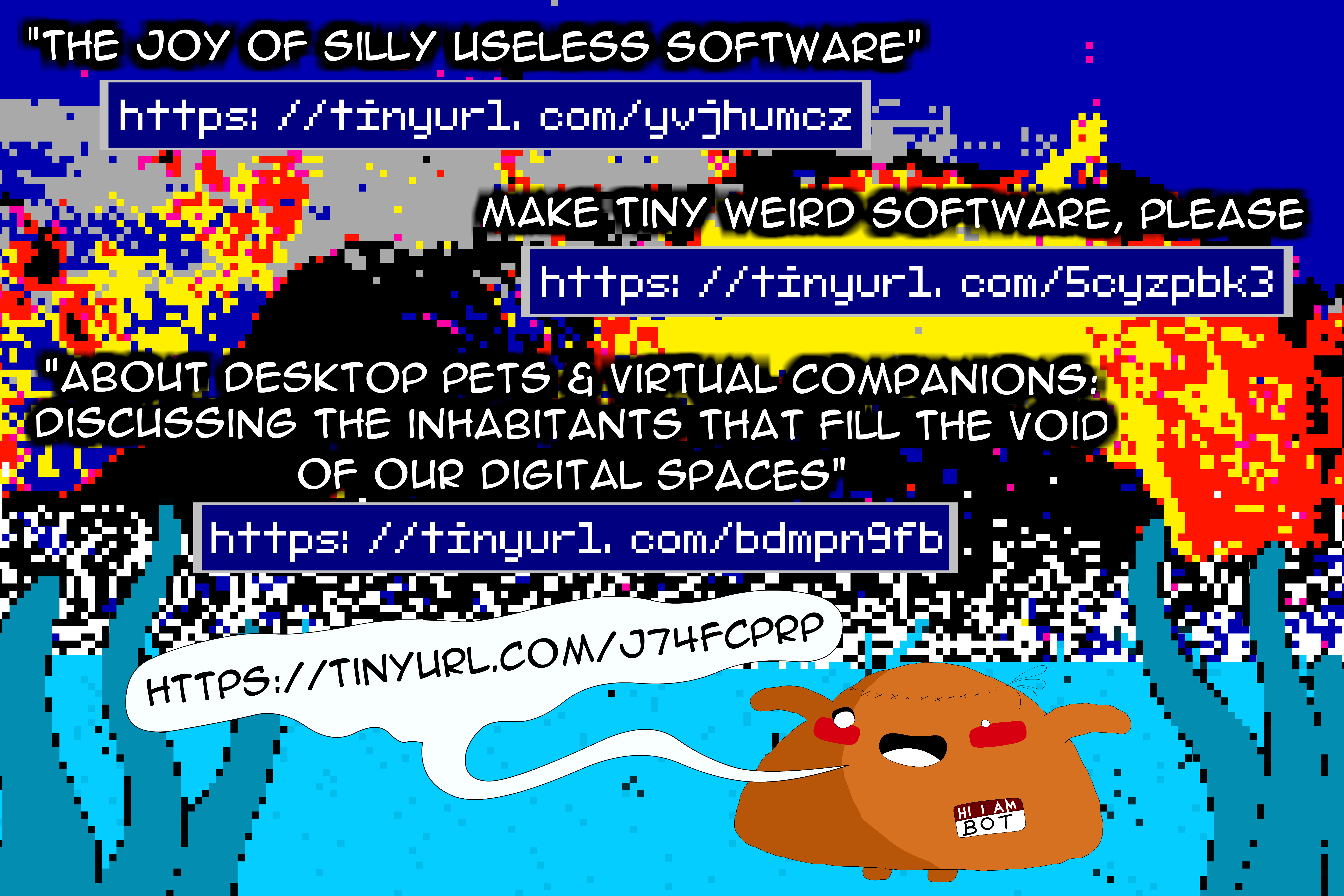
– Links in this slide…
* The Joy of Silly Useless Software
* Make Tiny Weird Software, Please! (all about desktop pets, old computer eras, and virtual toys)
* About desktop pets & virtual companions: discussing the inhabitants that fill the void of our digital spaces
* desktop pets & virtual companions…
For example, when I was young and finally had an internet connection I would spend hours downloading weird experimental parody programs, toys, or desktop pets from hobbyist developers… I loved how these silly things empowered you with the ability to change the desktop environment into something fun. They filled this virtual void with their presence and made it a home.
I still have some of the things I saved. This sort of software was by no means a fringe thing. It was popular. Enough so to have nostalgia for desktop pets.
I think it’s so fascinating that when you make something like this, the absolute love people have for it.
A long time ago I started making this parody software called “potatoware“. It started with this inherently useless desktop companion called an “Electric Love Potato” which was just a potato that would take up a huge chunk of window space, and uselessly sit there while enthusiastically commenting on everything you were doing. It would occasionally ask you for permission to sing to you, interrupting what you do with an annoying prompt. If you chose “yes” it would awkwardly serenade you. It also offered a constant stream of potato recipes.
This was a joke. I made it to make people laugh. It took off as a meme with streamers making reaction videos to it.
The response was kind of overwhelming. Enough for me to make a version 2 with more features (like watering, and combing your potato)… and a music player where you could import your music into it and the potato playing your music would interrupt the songs, enthusiastically commenting on why it likes your musical taste.
All the features in these are specifically designed to make you laugh. Like with the desktop potato, there’s a feature where it can get attacked by files on your machine. If you don’t defend it, it will turn into a rock. Then you have a digital pet rock on your computer which does absolutely nothing.
Exploring the theme of parodying software, I even went on to making a fake virus scanner that acted like a prison industrial complex for your filesystem.
You would run it and it would randomly accuse your files (like images, or text documents it found anywhere on your machine) of being a virus.
Because the authority figure said so, then it must be true. The files on your machine are all conspiring!
You could put these files into interrogation (where your file would plead with you that it’s innocent), the file lineup (where you could choose the most suspicious looking document), or straight to the file prison where you made a fictional currency from your file inmates. The virus scanner supposedly “runs” in the background, but it’s so intrusive with all the pop ups that appear, gossiping about what files are potentially doing and asking you to act on that information, that you can’t do anything else while it runs.
There is a “win” state which you can unlock by playing this accusation game long enough (or better yet “buy” victory with the fictional currency), meaning that the “scan was completed” and it found nothing really wrong with your machine in the end.
This sort of thing functions as turning your actual desktop into a playground or space for a game.
I think that’s a fascinating tangent to explore with software. It can be a conduit to a fantasy reality, blurring the line between where the fiction starts and the software stops. For example, the fantasy console movement is a beautiful thing to observe.

























